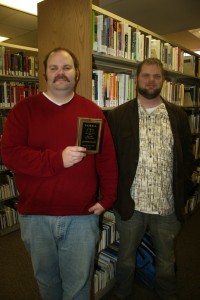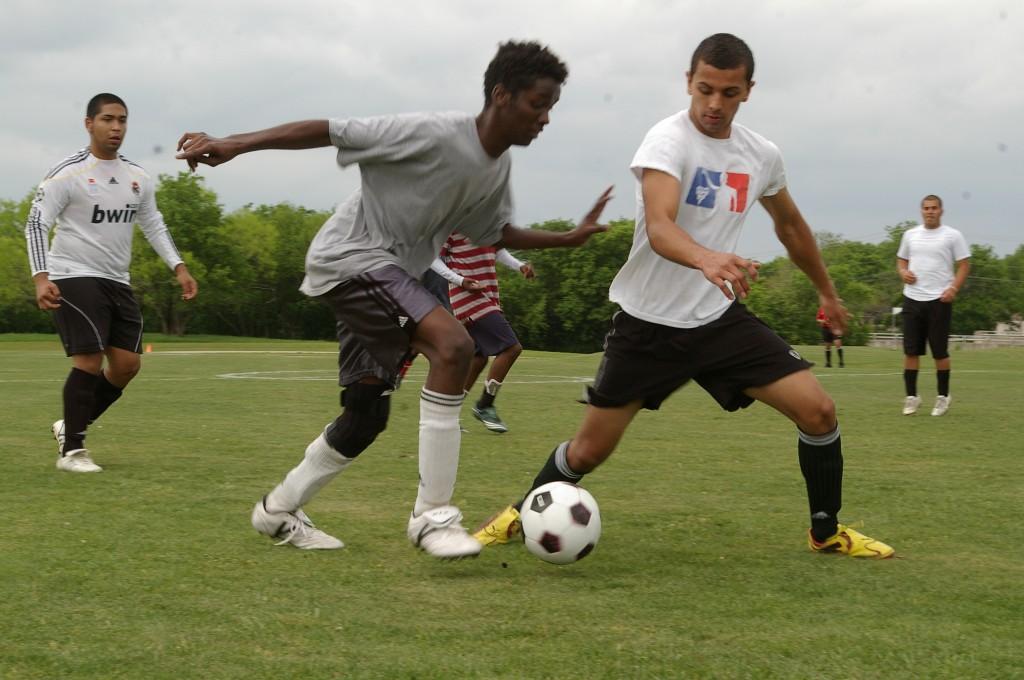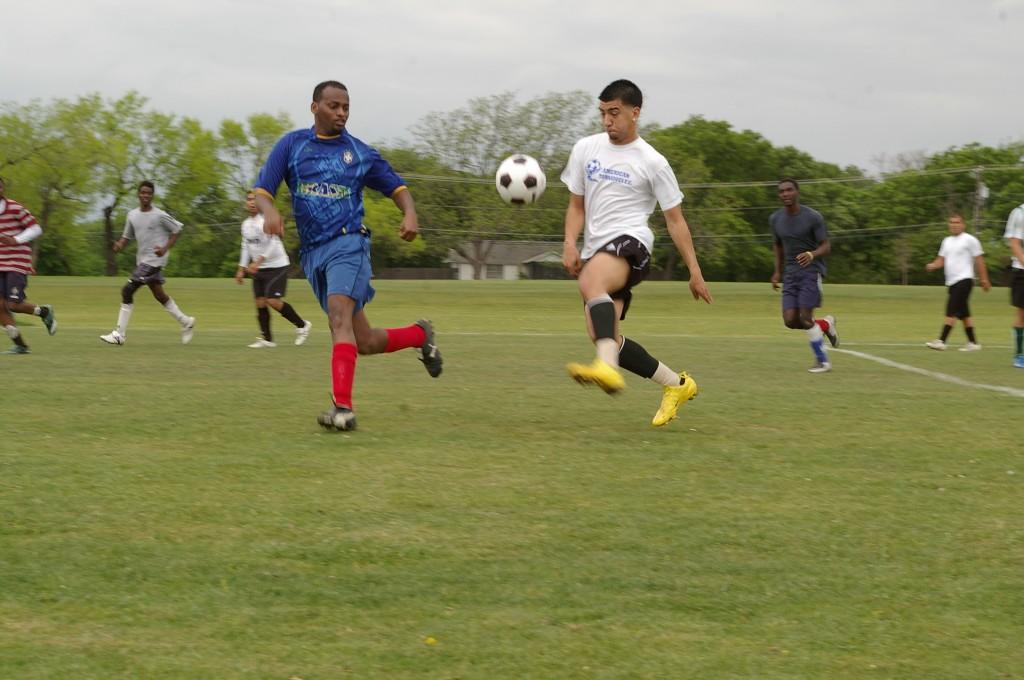By Bethany Peterson/nw news editor
NW Campus students Thomas and Joe Wood took on four-year college students to rank fourth in a statewide moot court competition.
Teams from colleges across Texas met April 9 and 10 at the University of Texas at Arlington for the competition.

Of the 12 teams entered, the Wood brothers representing TCC made up the only team from a community college, said Julie Lantrip, moot court adviser.
The two-member teams debated realistic court cases before a “judge” who critiqued their arguments on the Bill of Rights.
“I’ve never been on a debate team,” Thomas Wood said. “Our dad is a lawyer, so we argue a lot for fun.”
Thomas Wood said as a kid, he tried to argue his way out of punishment, but it never worked.
The pair participated in a training trial against another TCC team.
Moot court teams must have arguments for both sides of the case.
The Woods argued once as the state and three times as the defendant.
This year’s case debated the privacy issue of using Army-issued surveillance equipment against a citizen and whether life in jail was “cruel and unusual punishment” for a defendant under 18.
“Our first two rounds [on the 9th], we felt very confident,” Thomas Wood said.
During a round, the judge often will interrupt the teams to ask about evidence or the interpretation of the law the team is trying to argue.
Thomas Wood said he and Joe liked the judge to interrupt because they think well on their feet and remember everything they have read, making it easy for them to respond.
“In the last round, the judge did not ask anything,” Thomas Wood said.
The Wood team advanced to the final round on the 10th, but no farther.
“Throughout the competition, we never felt that we were lacking,” Thomas Wood said.
Lantrip was impressed with the team’s performance, especially since they didn’t start work on their case until April 1.
“We want them to learn how to debate, how the legal system works,” Lantrip said.
Moot court teaches team members how to deal with direct questioning of their positions, she said.
“It’s great for anyone going into the legal field or to improve communication,” Lantrip said.


























